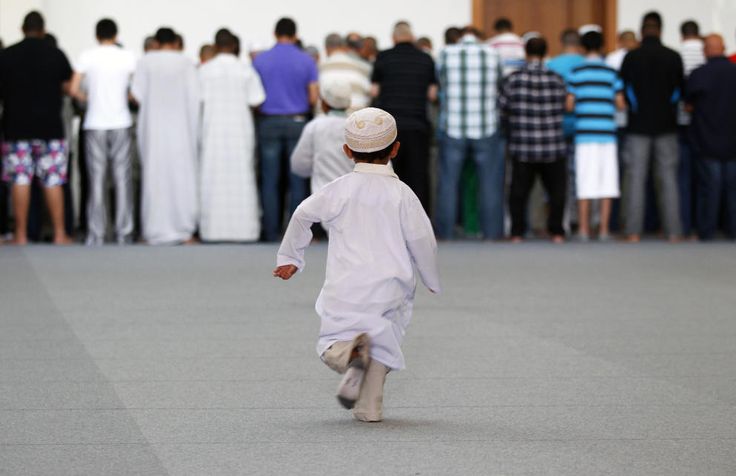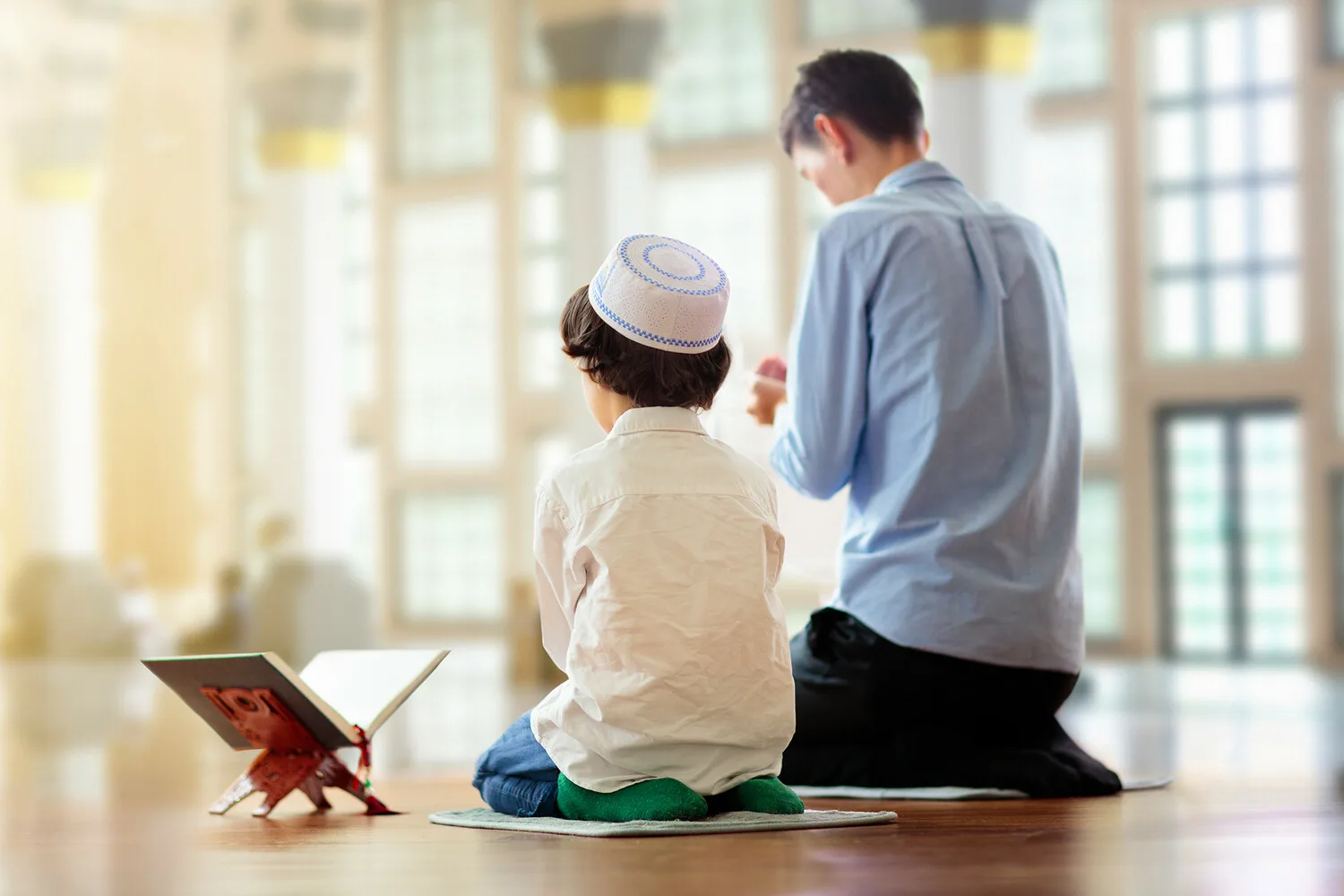Raising children in Islam is a comprehensive responsibility that encompasses nurturing their spiritual, moral, intellectual, and physical development according to Islamic values. It is a vital task that shapes the future of both the child and the community, ensuring that children grow up as righteous, knowledgeable, and balanced individuals. Islam provides clear guidelines from the Quran and Sunnah on how parents should approach child-rearing with wisdom, compassion, and discipline. In this article on Arabian Tongue website we will explorer How To Raise Children In Islam.
How To Raise Children In Islam

In Islam, children are considered a gift and trust from Allah, and parents are accountable for how they raise them. The aim is to nurture children who will worship Allah alone, display good character, and contribute positively to society.
-
Education with Tawheed (Oneness of God): The foundation of a child’s upbringing in Islam is teaching them the belief in the Oneness of Allah (Tawheed). This includes introducing them to the basic concepts of Islam such as the pillars of faith, salah (prayer), and dua (supplication) from an early age.
-
Role of Parents as First Educators: Parents are the primary teachers and role models. The Prophet Muhammad (peace be upon him) said: “Each of you is a shepherd, and each of you will be questioned about his flock.” Thus, parents must set positive examples with their actions and words.
-
Balanced Approach: Islam emphasizes balance. While discipline is necessary, harshness or negligence is discouraged. Mercy, love, patience, and kindness are keys to effective parenting.
Spiritual and Religious Education
Raising children with strong spiritual roots is a priority in Islam. This spiritual education forms the core of their identity and guides their behavior.
-
Teaching Prayer and Worship: Children should learn to perform the five daily prayers early. Parents can start with small steps, teaching them to pray even if they do not fully understand, as habits established in childhood become lifelong.
-
Recitation and Memorization of Quran: Instilling love for the Quran is crucial. Parents should encourage their children to listen to and recite the Quran regularly. Memorization should be taught gradually without pressure, fostering respect and understanding.
-
Moral Values and Etiquette (Adab): Children should learn Islamic morals such as honesty, humility, respect for others, gratitude, and patience. Teaching the etiquettes of speech, eating, socializing, and handling emotions molds refined personalities.
-
Stories of Prophets and Islamic History: Narrating stories from the lives of the Prophets and righteous figures instills inspiration and moral lessons. This also helps children connect with their heritage.
Intellectual Development and Education
Islam strongly encourages seeking knowledge. Raising children intellectually involves providing a supportive environment for learning both religious and worldly knowledge.
-
Encouraging Education: The Prophet Muhammad (PBUH) said, “Seeking knowledge is an obligation upon every Muslim.” Parents should ensure their children attend school, engage in reading, and develop skills.
-
Critical Thinking and Understanding: Children should not only memorize but also understand Islamic teachings to apply them wisely. Parents and teachers should encourage questions and provide age-appropriate explanations.
-
Use of Stories, Games, and Technology: Islam allows using modern tools and methods to facilitate learning as long as they align with Islamic ethics. Educational games, apps, and interactive lessons can make learning enjoyable.
Physical and Emotional Care
Physical health and emotional well-being significantly impact a child’s ability to learn and grow.
-
Nutrition and Health: Parents are responsible for providing nutritious food, regular medical check-ups, and teaching hygiene in line with Islamic cleanliness principles.
-
Emotional Support and Security: Children should feel loved and secure at home. Islam emphasizes compassion in parent-child relationships. Parents should listen attentively, console their children, and foster self-esteem.
-
Discipline with Wisdom: Discipline is necessary but must be exercised with wisdom, avoiding cruelty. The Prophet (PBUH) discouraged harsh punishment and emphasized gentle correction that aims at teaching rather than punishment.
Social and Environmental Aspects
Children are social beings and must learn to interact respectfully in society.
-
Teaching Respect and Rights: Islam teaches respecting parents, elders, teachers, and peers. Children should learn about rights and responsibilities within family and society.
-
Encouraging Social Interaction: Family gatherings, visiting others, and community involvement teach social skills and empathy.
-
Protecting Children from Negative Influences: Parents should monitor and guide children in their media consumption, friendships, and activities to prevent harmful exposure.
Gender Roles and Islamic Identity
Islam acknowledges differences between boys and girls and encourages raising each with awareness of their unique strengths and roles.
-
Equal Opportunity in Learning: Both boys and girls have the right and duty to learn Islam and seek knowledge.
-
Modesty and Hijab Awareness: Teaching girls about modesty and the wisdom behind hijab should be done with respect and encouragement, not pressure.
-
Preparing for Future Roles: Boys should be prepared to be responsible leaders, and girls as nurturing, strong individuals who contribute to society.
Key Tips for Muslim Parents

-
Be consistent in practicing and teaching Islamic rituals and values.
-
Create a loving environment filled with Dua and reliance on Allah.
-
Encourage children’s talents and interests as long as they do not contradict Islamic teachings.
-
Maintain open communication and listen to children with empathy.
-
Serve as the best examples through own behavior and attitudes.
FAQs
At what age should I start teaching my child about Islam?
Teaching about Islam can start from infancy through storytelling, dua, and good examples. Formal learning becomes more effective as the child grows, typically when they can understand and interact around age 3-5.
How can I encourage my child to pray regularly?
Begin by praying together as a family, explaining the importance of prayer in simple terms, and creating a positive and gentle routine. Praise and rewards for praying can also motivate children.
What if my child asks difficult questions about Islam?
Encourage curiosity and provide honest, age-appropriate answers. If you don’t know, it’s okay to say you will find out together. This builds trust and deeper understanding.
How should I discipline my child in an Islamic way?
Discipline should be fair, consistent, and done calmly without physical or verbal abuse. Use positive reinforcement and teach the wisdom behind rules rather than just punishment.
How do I balance modern education and Islamic teachings?
Islam encourages all beneficial knowledge. Ensure that your child’s secular education complements Islamic ethics, and regularly reinforce Islamic identity through home teaching and activities.
Conclusion
Raising children in Islam is a sacred and challenging duty that requires dedication, patience, love, and wisdom. It involves nurturing faith, morals, intellect, physical and emotional health, and social skills while adhering to Islamic principles. Parents have a pivotal role in shaping not just their children’s futures but also the future of the ummah by producing righteous, knowledgeable, and compassionate individuals. Through a balanced approach combining spirituality and practical care, Muslim parents contribute to fulfilling Allah’s trust and raising generations who will uphold justice, mercy, and faith in society.

